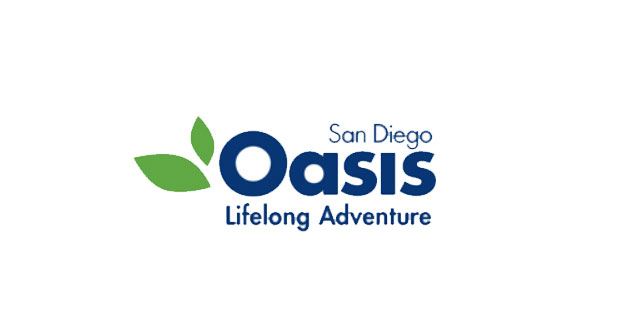By Simona Valanciute
President and CEO, San Diego Oasis
After nearly two years of physical distancing, many families are finally able to reunite safely with their loved ones this winter. I work with hundreds of seniors in San Diego each week, and it brings me so much joy to see their gratitude and anticipation for a holiday season where they can finally see their children, grandchildren and loved ones again. They are ready to live their lives again.
However, many others will not have this opportunity, for reasons ranging from compromised immune systems to financial strain and distance. For these elderly individuals, the threat of the pandemic is as serious as ever—and the threat of social isolation is even more severe. Older adults who are disengaged socially essentially give up hope and are more likely to decline mentally and physically. Many isolated seniors literally died of loneliness at the height of the pandemic.
That is why, this holiday season, organizations serving older adults are doubling down on efforts to combat isolation among seniors. Social connection can be the difference between life and death for their clients—and it improves the lives of everyone in our communities.
Stepping Up for Seniors
Many older adults were struggling even before 2020 from the serious health effects of social isolation. The already high rates of loneliness among seniors have only increased since the onset of the pandemic, and this will have major consequences for years to come. According to recent studies, the impact of social isolation is equivalent to smoking 15 cigarettes per day. Other research has indicated a link between loneliness and Alzheimer’s disease.
Senior-focused organizations in San Diego, though, have gone above and beyond to give the older adults they serve safe ways to connect with others outside their home.
Before the pandemic, Meals on Wheels San Diego County delivered nutritious meals to over 1,000 homebound clients countywide seven days a week. But Covid-19 turned seniors’ lives upside down, cutting them off from family friends and even making leaving their homes unsafe. Requests for Meals on Wheels deliveries skyrocketed by 47 percent. Thankfully, as Meals on Wheels San Diego County’s president and CEO Brent Wakefield said in an op-ed this year, Meals on Wheels volunteers have saved lives by reporting mental and physical issues in their elderly clients to care navigators—and meal deliveries have become a bright spot in both clients and volunteers’ lives.
Providing connection for seniors during the pandemic became a mission within a mission for the Gary & Mary West PACE center in San Marcos. When West PACE had to suspend in-person services, the center’s team sprang into action. They quickly pivoted to an in-home focused model of care, providing many participants with easy-to-use tablets to help them stay socially engaged and connect directly with medical staff. Now that West PACE’s day center has re-opened, staff are continually working to prioritize safe social interaction for participants, which they believe is just as important as the comprehensive health services they provide.
No Place for Ageism in a Post-Pandemic World
While the pandemic has shed new light on the crisis of senior isolation, it has also shown us how our dynamic, resilient senior population in San Diego relishes opportunities to learn, connect and stay engaged. My organization, San Diego Oasis, offers a wide array of free or low-cost lifelong learning courses in subjects ranging from art history to using smartphones, many of which are also taught by seniors, as well as volunteer opportunities like our Intergenerational Tutoring program. When we had to take all our programming online in March 2020, I will admit that even I was surprised at how eagerly our students—some in their nineties—picked up Zoom and signed up in droves.
However, even though we may have gained a new empathy for isolated seniors during the pandemic, ageism is still the most socially acceptable form of discrimination. Our society in general still does not treat older adults like the full, vibrant human beings they are, and this attitude isolates seniors and dims the future of younger generations.
If you are thankful for the ability to reunite with older loved ones this holiday season, consider giving back to others who may not be able to do so by supporting organizations that are helping seniors stay connected—and improving or even saving lives in the process.
Simona Valanciute is the President and CEO of San Diego Oasis, an award-winning nonprofit organization serving people age 50 and better, who pursue healthy aging through lifelong learning, active lifestyles, and community service. Learn more at www.sandiegooasis.org.



